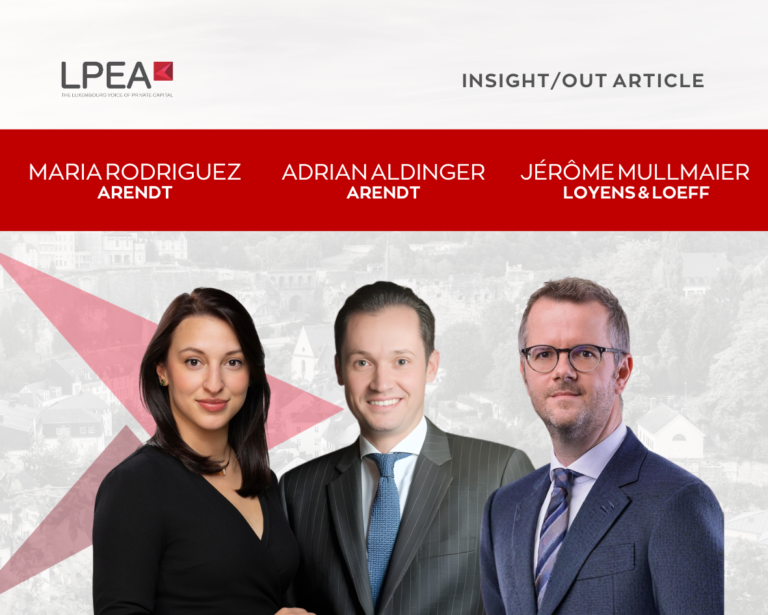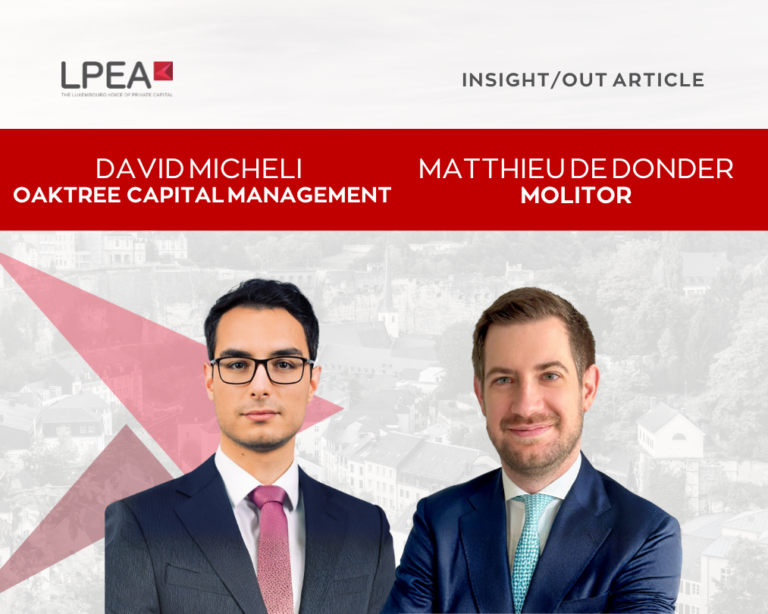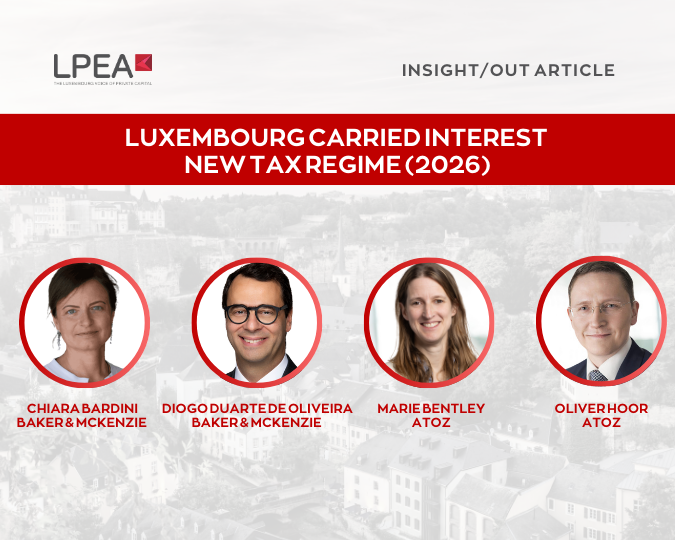Keynote speech by Ying White, partner at Clifford Chance, at the LPEA ChinaLux conference on 18 January 2024
In January 2024, Ying White, a partner from the global law firm Clifford Chance’s China office gave a keynote speech on the PE market in China and opportunities for Luxembourg. According to White, the PE market in China is in a crisis-like situation, caused by geopolitical tensions, crackdowns on industries such as property, tech and finance, tighter regulatory controls, and slumping valuations in the HK stock market. However, there are specific and discrete opportunities for global managers and service providers in Luxembourg. This perfectly reflects the Chinese word “危机” (crisis and opportunities).
Sharp Decline in USD Fund Raising and NY/HK IPO Exits
China-focused PE/VC funds raised substantially less capital than before. According to Bloomberg data, fund raising declined by 89% in H1 of 2023 compared with a year earlier.
On the exit end, HK Listings, which has been among the most popular exit options for USD funds, only raised US$ 3.5 billion by October 2023, down by 68% from the same period last year and far below 2021’s US$ 42.8 billion. In fact, IPO capital raising was the lowest since 2001 and volume had dropped by 85% from the 10-year average, according to Bloomberg. PE and VC exits through New York listings have barely restarted in October 2023.
China Domestic RMB Fund Raising and IPOs
China-focused, yuan-denominated PE funds did not fare well either. Fund raising was only US$9.7 billion by September 2023, compared to US$33.7 billion in 2022 and $116.6 billion in 2021, according to Reuters.
On domestic exits, after an IPO explosion between 2020 to 2022 with 1,600 new listcos, the market saw a steep decline in 2023 with 313 new IPOs and a de facto suspension of approvals from the Chinese regulators since September 2023.
The China PE Market is Changing
From outside of China, downward pressure on valuations and deal flow and lack of liquidity in the capital market has led to a cautious sentiment of global investors toward investment in China. Parallel with that, Singapore is increasingly replacing Hong Kong as the hub to conduct work for China PE or IPOs.
Inside China, the changes are even more significant. On the policy front, the geopolitical tensions, the retreat of foreign capital, and the Chinese government’s increasing emphasis on national self-reliance in tech and security related areas are showing their impact on the domestic PE market. For example, in the fund-raising market, state and local government funds now account for 70% of total RMB fund raising. As the governments have different objectives from the private investors, this is driving changes in PE’/VC’s investment strategies and risk management practices, becoming closer aligned with their government investors’ requirements, rather than market demands.
Opportunities for Luxembourg
The poor performance of the domestic market is driving a tremendous demand from the Chinese investors to diversify and invest overseas. Currently two programs are widely sought after: (i) the QDLP program and (ii) the QDII program. Global managers interested in opening a new fund-raising channel can certainly explore these.
QDLP programs are sponsored by several local governments in China, including the municipal governments of Shanghai, Beijing, Shenzhen, and the provincial government of Hainan. They allow a global manager to set up a local Chinese feeder fund with Chinese investor capital and investing that feeder fund into the manager’s global fund products or direct investment projects. The QDLP regulations tend to be more flexible, allowing a QDLP feeder fund to invest in all sorts of fund products and direct investments. For a global manager, the key task is fund marketing in China to Chinese investors. To achieve this, managers will need to find local distribution partners, which are typically financial institutions.
The QDII programs are regulated by the Chinese financial regulators. QDIIs are Chinese financial institutions, such as banks, trust companies, mutual fund companies, insurance companies and securities companies, which are authorized to pool Chinese investor money in fund products and invest them abroad. The regulations governing these QDIIs are restrictive (other than in respect of insurance company QDIIs). As a result, they are more suited to Chinese retail investors.
Another opportunity for Luxembourg may come from China focused USD/Euro fund managers, who are now increasingly looking to fund raise from European family offices following the retreat of North American investors. Given that marketing to European investors were not common in the past, managers are seeking to engage European fund-raising consultants to jump start the process. Additionally, the Chinese managers are now exploring setting up Luxembourg fund structures to house European investors. Related to that is an increasing interest in using existing third-party AIFM platforms.
All these present new and interesting opportunities for the Luxembourg funds industry. We will continue to monitor this area and welcome your thoughts and inquiries.




